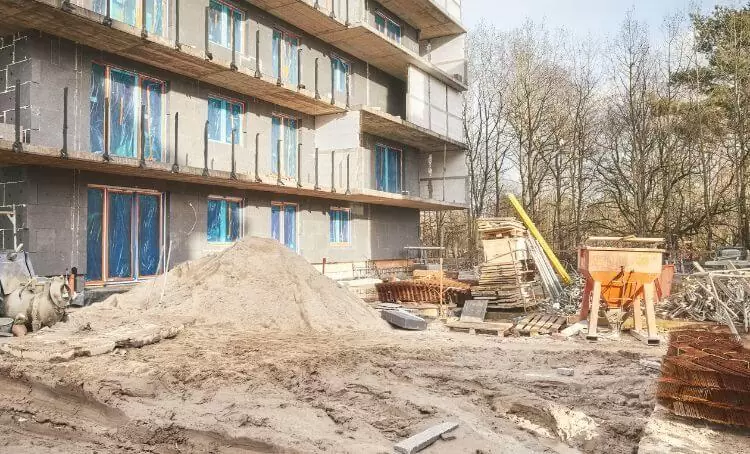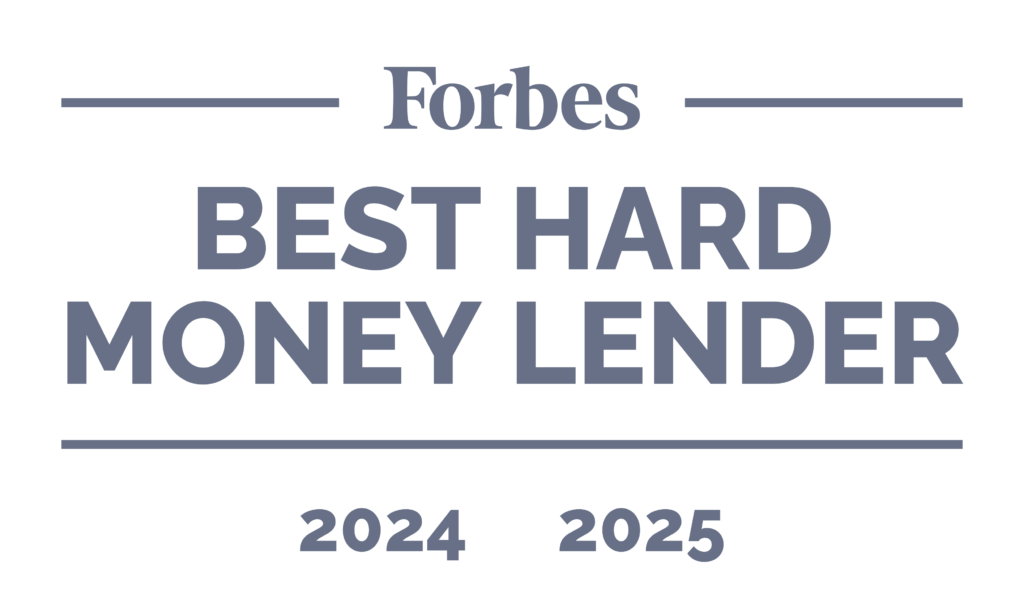Multi-Family financing is an attractive option for property owners looking to invest in real estate. It offers a range of advantages over traditional loans, such as speed and flexibility.
In this article, we’ll discuss how to finance a multi-family property, why hard-money loans are the ideal choice for multifamily financing, and how Express Capital Financing can help you get the loan you need.
What are Multi-Family Properties?
Multi-family properties are property types that are comprised of 4-5+ separate family residences.
A poll conducted by the National Multi-family Housing Council indicated that well over 60% of all rental assets are categorized as multi-family properties, whereas only a third of them are single-family residences.
Some examples of multifamily buildings are apartment buildings, duplexes, townhomes and condo buildings.
What Are Hard Money Loans?
Hard money loans are a type of short-term financing offered by private lenders instead of traditional financial institutions.
Also known as “asset-based” or “private money” loans, hard money loans are secured by real estate assets and are used to finance the purchase or renovation of multi-family properties.
Hard money loans typically have higher interest rates than conventional mortgages. But, due to typically more flexible loans terms, they can be more accessible to borrowers with less-than-perfect credit histories or those who need quick financing or a short-term loan.
One of the ideal scenarios for hard money loans is when you need a loan on short notice to use for a multi-family financing investment.
The Benefits of Multi-Family Investing

The appeal of multi-family properties from an investment perspective is that they present the ideal opportunity to generate a passive income stream that far outstrips expenses for the owner’s mortgage payments and maintenance costs. This enables landlords to realize a profit with a minimal amount of effort expended.
Lower Price-Per Unit
The comparatively steep upfront cost of acquiring a multi-family residence may be daunting, especially for new investors. However, the price per-unit is undeniably lower than it would be if you were to buy an equal number of single-family properties.
Lower Vacancy Impact
Multi-family investing properties collectively generate a consistent and healthy cash flow on a monthly basis, even if there are a few vacancies along the way or delinquent tenants.
To illustrate, consider that a ten-unit property would only have a ten per cent unoccupied rate if one of the tenants moves out. Alternatively, if a tenant moved out of a single-family residence, then it would obviously be fully unoccupied and generate no income.
When tenants vacate a multi-family residence, it offers landlords the opportunity to repair and renovate the temporarily empty unit if such upgrades are needed. It also affords the owner time to select reliable tenants, so they’re not forced to accept the first application due to financial concerns.
Quickly Grow Your Investment Portfolio
Investors looking to develop a diverse and extensive real estate investment portfolio comprised mainly of rental properties can do so relatively fast by acquiring multi-family residences.
As opposed to buying numerous individual single-family residences, an investor can purchase a single multi-family property and generate an equitable amount of passive income with a fraction of the administrative and logistical hassle.
This is a much more efficient and streamlined approach as you do not have to coordinate between multiple different sellers or obtain a host of different loans since you are buying just one single property.
The Options to be Hands Free
Another potential advantage of multi-family residences is that you have the option of hiring a property manager.
A good manager, in exchange for a minimal monthly rate, will manage the day-to-day details of maintaining the property. This includes collecting rental payments, screening potential renters, conducting repairs and enforcing eviction proceedings if necessary.
All of this frees up your calendar to focus on making additional investment moves and eliminates a substantial amount of the stress that is typically associated with owning rental properties.
How to Finance a Multi-Family Property

Financing a multi-family property is a complex process which requires determination and research.
Although the amount of paperwork and the process of securing financing for a multifamily property may be daunting, it can be made easier with the right approach.
Here are some tips to help you finance your multi-family property:
1. Research Financing Options:
There are several different types of loans available, including conventional loans, FHA loans, agency loans, hard money loans and private financing. It’s important to research each option to determine which one is best for you.
2. Consider Your Financing Needs:
Before applying for a loan, it’s important to consider your financial needs and goals. Determine how much money you need and whether you are willing to pay higher interest rates for a shorter loan term.
3. Gather Documentation:
Lenders will need to review your income, credit history, and other financial documents before approving your loan. Be prepared to provide these documents in order to speed up the application process.
By following these tips, you can increase your chances of obtaining the best financing package for your multi-family property.
What Types of Financing is Available for Multi-Family Financing?
When it comes to financing a multi-family property, there are several loan options available. Some have strict qualification requirements, while others are easier to get your hands on.
Depending on the size and complexity of the project, lenders will offer different types of loans – from conventional bank loans and Fannie Mae/Freddie Mac loans to FHA and USDA loans.
Here is a quick overview of the most common types of multi-family financing:
Conventional Bank Loans:
These are the most common types of loans for multi-family properties. They offer more flexibility and generally have lower interest rates than other types of loans. Down payment requirements vary from bank to bank, so make sure to do your homework.
Fannie Mae/Freddie Mac Loans:
Fannie Mae and Freddie Mac – also known as ‘agency loans’ – are government-sponsored loans that are typically used for larger projects or for borrowers with higher credit scores.
FHA/USDA Loans:
These loans are designed to help buyers who do not have the necessary funds for a down payment. They offer lower interest rates and more flexible repayment terms.
Hard Money Loans:
These loans are typically used for short-term financing and are often more expensive than conventional bank loans. They usually have more flexible qualification requirements, making them easier to secure quickly.
Why Hard-Money Loans Are Ideal for Multi-Family Financing

The main advantage of using a hard money loan when buying a multi-family property is that, as opposed to conventional financing methods, it’s faster, more practical and it offers flexible loan terms.
With often flexible qualification requirements, these loans are a great solution for those looking for funds quickly.
Being a short-term loan, (usually 6-12 months) you will have your funding disbursed in a shorter amount of time and with far less paperwork than if you go with traditional lenders.
Regardless of whether you are new to commercial real estate investing or you are an experienced industry practitioner seeking to expand your holdings, multi-family commercial units offer a strong investment profile.
Get Multi-Family Financing Today
Here at Express Capital Financing, we provide multifamily loans for investors who are looking for an ideal investment beyond the scope of single-family homes.
Like all of our private money lending options, we ensure a hassle-free and reliably efficient loan process from start to finish. We’ll help you work through all the details, from additional qualifying factors to operating costs to any additional services required.
Our team of dedicated experts will work with you to find the best type of financing for you. No matter if you are just getting your feet wet in the real estate investment industry or are a seasoned expert in crafting a personally tailored financing package that meets each and every one of your short and long-term financial plans, we’re here to help you make it happen.
FAQ
Multifamily units can get longer financing terms than other types of real estate investments, depending on the lender and the type of loan. Generally, multifamily properties have access to more types of financing than other real estate investments, so it is possible to secure a loan with longer terms. Common mortgage products used for multifamily financing include fixed-rate loans, adjustable-rate mortgages (ARMs), and bridge loans.
No, multifamily loans are not more difficult to qualify for than other types of real estate investments. While lenders may have stricter requirements for qualifying borrowers, the process typically remains the same as with any other loan. The key is to research your options and find a lender that offers competitive rates and terms.
In most cases, you will need to make a down payment when applying for a multifamily loan. The amount of the down payment can vary based on the type of loan and the lender, so it is important to discuss your options with your lender.
To help with all of these questions and more, we've put together this handy guide on evaluating fix and flip properties.
The maximum loan-to-value (LTV) ratio for a multifamily loan depends on the type of property, borrower requirements, and loan program. Generally speaking, most multifamily lenders will offer an LTV of up to 75%. For some programs, especially those with government backing such as Freddie Mac or Fannie Mae loans, the maximum LTV can be higher.
For more information on multifamily loans and their qualifications, contact Express Capital Financing to discuss your options.






